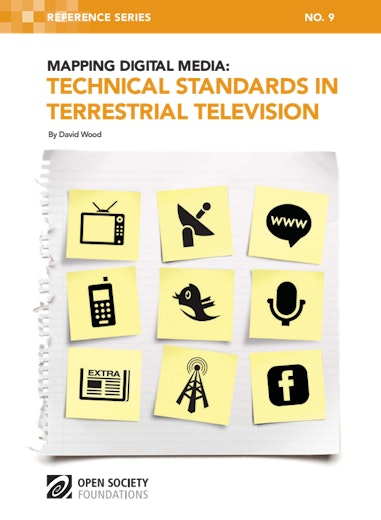The Mapping Digital Media project examines the global opportunities and risks created by the transition from traditional to digital media. Covering 60 countries, the project examines how these changes affect the core democratic service that any media system should provide: news about political, economic, and social affairs.
Technical standards apply in many fields, including the media industry. They evolve in response to new technologies that aim both to satisfy and to generate consumer demand. Standards can help to maximize choice and competition for goods and services, and they enhance access to goods and services of public value—including public service media. Other things being equal, the more widely a standard is used, the greater the overall benefit to consumers and citizens.
Common international standards benefit less developed countries, by easing the pressure on them to make difficult and sometimes political decisions over which standard to adopt. However, the market will not, on its own, guarantee successful standardization. A broad range of stakeholder engagement in international standards discussions, and enlightened leadership of standard-setting bodies, is essential if we are to follow a path that favors the global public interest rather than national or company interests.
Download
-
Mapping Digital Media: Technical Standards in Terrestrial Television (187.31 Kb pdf file)
Download the complete 21-page report.
Read more
Voices
What Does Independent Journalism Look Like in the Digital Age?

Journalists and media organizations can find themselves repressed because of inadequate or deliberately repressive policy. Mapping Digital Media examines the situation in 56 countries.
Voices
Does Digital Media Mean Better Media?
From Montenegro to Nicaragua to China to Egypt, has digital media improved access to good-quality journalism?
Voices
Early Days for Digital Media in Morocco
Digital media in Morocco continues to advance. With 105 percent mobile phone penetration in the country and a growing appetite for online news more change is on the way.
